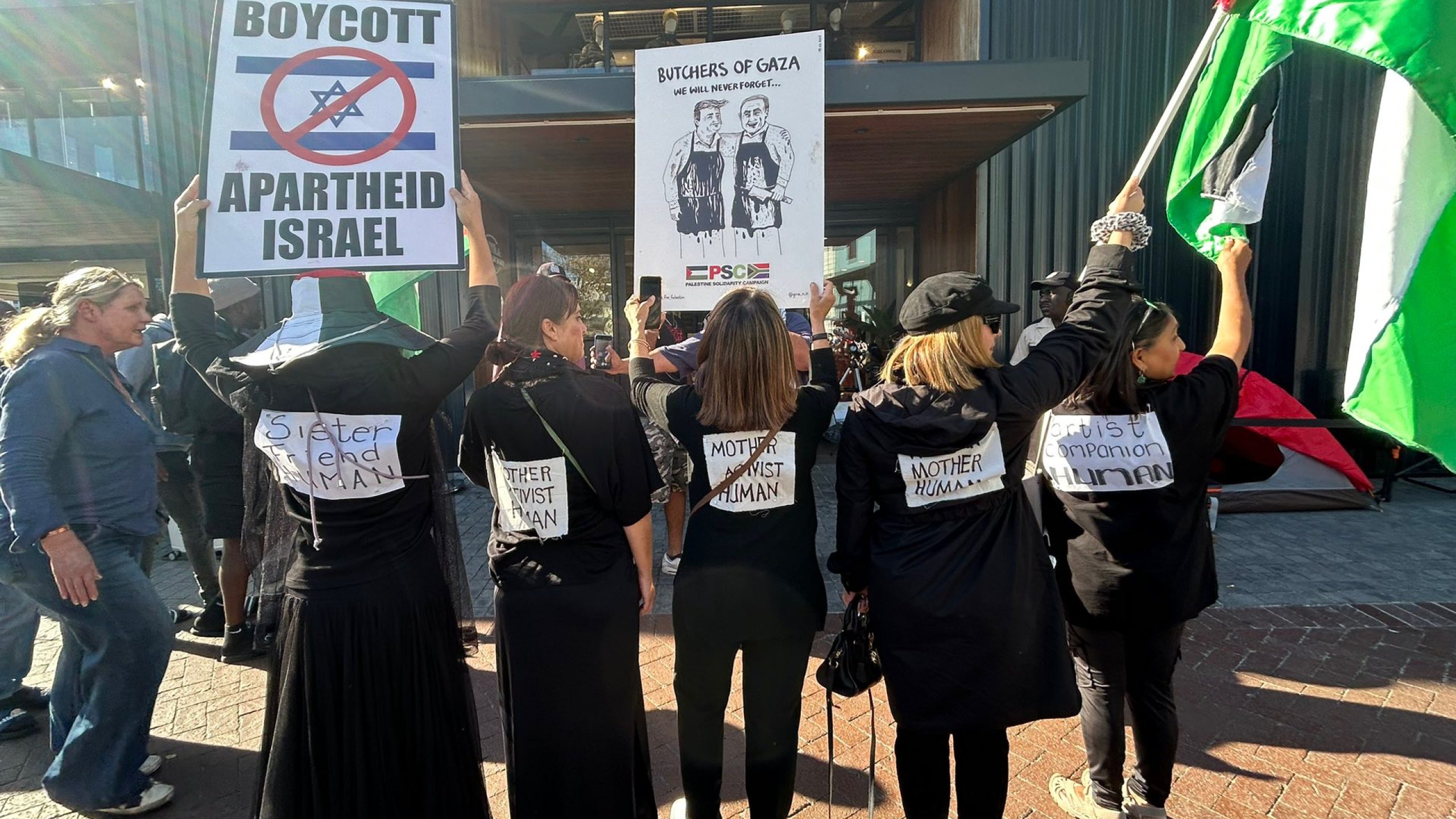The Cape Union Mart protest has escalated into a legal dispute over freedom of expression and the right to protest. Activists aligned with the pro-Palestine movement claim the company’s court application undermines South Africa’s constitutional rights.
Demonstrators began staging peaceful protests outside Cape Union Mart outlets last year. Their call for boycotts stems from the company’s alleged ties to Israel. Protesters argue they’ve exercised their rights legally and non-violently, with no intent to cause harm or disruption.
Protesters Defend Their Right to Speak Out
The activists argue that Cape Union Mart’s move to obtain an interdict represents a broader attempt to silence public criticism. They believe the court order would create a precedent where large retailers can shut down protest in spaces like malls or shopping centres, places where public attention is most effective.
According to the protesters, the signage and slogans used during demonstrations reflect their political views. They deny any incitement to violence, maintaining that the demonstrations have stayed peaceful throughout.
One protester explained that limiting where and how people can express views erodes the democratic freedoms guaranteed by the Constitution. They insist that free speech and peaceful protest are vital components of civic engagement.
Cape Union Mart Cites Safety Concerns
Cape Union Mart, meanwhile, defends its legal response. The retailer says it respects the right to protest but argues that the demonstrations have occasionally caused safety risks to staff and customers. According to its legal team, the protests have included inflammatory messages and disruptions to business operations.
The company’s proposed interdict seeks to restrict protests within 150 meters of its stores. It also aims to ban protestors from using face coverings, placing placards at store entrances, or engaging in speech that Cape Union Mart deems defamatory.
A Broader Battle Over Democratic Space
This Cape Union Mart protest could become a defining moment in South Africa’s legal approach to public dissent, as legal commentators argue it raises urgent concerns about whether private companies should be allowed to curtail protest in public-facing spaces and how civil rights can be protected while maintaining public safety.
As the legal battle unfolds, the outcome may influence how protests are managed in South Africa for years to come.


